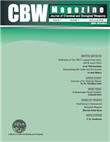Nuclear Weapons
Pakistan Will Oppose the Fissile Materials Cut-Off Treaty at the Conference on Disarmament
Though world opinion is still divided on whether the FMCT would include past stocks or not, Pakistan appears to have decided to continue with the production of fissile materials and oppose any talks at the CD.
- Ch. Viyyanna Sastry
- January 29, 2010
Proliferation and Emerging Nuclear Order in the twenty-first century
- Publisher: Academic Foundation
2009
This book provides some important perspectives on the emerging nuclear order. The contributors discuss most burning questions of the day: What are the challenges to the global nuclear regime? What are the consequences of a nuclear Iran for West Asian peace and stability? Will it give rise to a nuclear quest among the important West Asian states?
- ISBN 13-978-81-7188-752-1,
- Price: ?. 595 /-
The Political undoing of Zardari
The current change in the Chair of the NCA merely indicates the declining power of President Zardari and does not necessarily mean empowerment of the civilian government.
- Smruti S. Pattanaik
- December 04, 2009
Pakistan’s HEU-based Nuclear Weapons Programme and Nuclear Terrorism: A Reality Check
In order to construct an operational nuclear device, terrorists need to obtain the requisite fissile materials - Highly Enriched Uranium (HEU) or plutonium. It has been proved that, generally, it is much simpler to devise a crude nuclear bomb with HEU than with plutonium. Hence, terrorists can have 'reasonable confidence' in the performance of weapons-grade HEU bombs. The magnitude of the threat of nuclear terrorism from Pakistan's HEU-based nuclear weapons programme is assuming alarming proportions. However, adequate preventive steps can be taken to minimize the danger.
- Reshmi Kazi
- November 2009
Re-visioning the Nuclear Command Authority
In a new book Nuclear Strategy: India’s March Towards a Credible Deterrent, Dr. Manpreet Sethi has recommended a restructuring of India’s Nuclear Command Authority. Since India’s nuclear doctrine is premised on ‘Assured Retaliation’, nuclear retaliatory attacks can only be authorised by the civilian political leadership through the Nuclear Command Authority. Presently, the Nuclear Command Authority, as approved by the Cabinet Committee on Security on 04 January 2003, stipulates:
- Ali Ahmed
- September 09, 2009
Outlook for the Seventies: Strategic and Technological
So far the Chinese have carried out ten nuclear tests which include one underground test, one test of a nuclear-tipped missile and three thermo-nuclear tests. In other words, the Chinese are on a comprehensive weapons programme, which will give them thermo-nuclear warheads from the megaton range down to small yield nuclear weapons of a few kiloton range and even fractional kiloton range. They are now engaged in improving the compactness of their warheads.
- K. Subrahmanyam
- September 2009
European Union Policy on CBRN security: A Primer
The European Commission (EC) adopted on June 24 a policy package on chemical, biological, radiological and nuclear (CBRN) security. With the sole aim to strengthen the protection of European Union… Continue reading European Union Policy on CBRN security: A Primer
- Alok Rashmi Mukhopadhyay
- July-September 2009
Furthering ‘No First Use’ in India-Pakistan Context
Pakistan has not subscribed to No First Use. That it could do so has been expressed informally by its President Zardari. India could take up the issue with Pakistan at a forum discussing Confidence Building Measures as and when the composite dialogue resumes. The Lahore Memorandum of Understanding posits such consultations. To get Pakistan on board, India may require initiating a strategic dialogue with Pakistan, outside of the existing composite dialogue framework. This would build trust that could impact other areas of the peace process positively.
- Ali Ahmed
- July 2009
A Q Khan Release and Non-Proliferation
On February 6, 2009, the Pakistani judiciary acquitted Abdul Qadeer (AQ) Khan, the symbol of Pakistani involvement in clandestine nuclear commerce. Since 2004, he had been under house arrest after the proliferation network, linking several countries, including Pakistan, was uncovered. Though he has been put under ‘unspecified security measures’, yet the release of AQ Khan – dubbed by the United States State Department spokesman Gordon Duguid as a ‘serious proliferation risk’ – is considered to be a disturbing development for the non-proliferation regime.
- Rajiv Nayan
- July 2009











